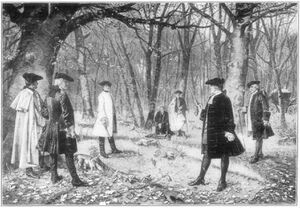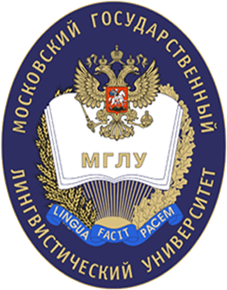Difference between revisions of "1804"
Jump to navigation
Jump to search
1794 < 1795 < 1796 < 1797 < 1798 < 1799 < 1800 <1801 < 1802 < 1803 < 1804 > 1805 > 1806 > 1807 > 1808 > 1809 > 1810 > 1811 > 1812 > 1813 > 1814
(unstub) |
m (description) |
||
| Line 3: | Line 3: | ||
|image_width= | |image_width= | ||
|image_caption=* July 11 – [[Aaron Burr]], Vice President of the United States, kills former U.S. Secretary of the Treasury [[Alexander Hamilton]] in a duel | |image_caption=* July 11 – [[Aaron Burr]], Vice President of the United States, kills former U.S. Secretary of the Treasury [[Alexander Hamilton]] in a duel | ||
| + | |description=Year 1804 | ||
}} | }} | ||
== Events == | == Events == | ||
Latest revision as of 11:54, 12 March 2021
 * July 11 – Aaron Burr, Vice President of the United States, kills former U.S. Secretary of the Treasury Alexander Hamilton in a duel | |
| Year 1804 |
Events
- January 1 – Haiti gains independence from France, and becomes the first black republic, having the only successful slave revolt ever.
- February 14 – The First Serbian uprising begins the Serbian Revolution. By 1817, the Principality of Serbia proclaims self-rule from the Ottoman Empire, the first nation-state in Europe to do so.
- February 21 – Cornishman Richard Trevithick's newly built Penydarren steam locomotive operates on the Merthyr Tramroad, between Penydarren in Merthyr Tydfil and Abercynon in South Wales, following several trials since February 13, the world's first locomotive to work on rails.[1]
- February 22 – April 22 – 1804 Haiti massacre, an ethnic cleansing with the goal of eradicating the white population on Haiti.[2]
- March 4–5 – Castle Hill convict rebellion in New South Wales led by Irish convicts in Australia.[3]
- March 21 – The Napoleonic Code is adopted as French civil law.
- April 26 – Henry Addington resigns as Prime Minister of the United Kingdom.
- May 10 – William Pitt the Younger begins his second term as Prime Minister of the United Kingdom.
- May 14 – The Lewis and Clark Expedition departs from Camp Dubois, and begins their historic journey by traveling up the Missouri River.
- May 18 – Napoleon Bonaparte is proclaimed Emperor of the French by the French Senate.
- July 11 – Aaron Burr, Vice President of the United States, shoots former U.S. Secretary of the Treasury Alexander Hamilton during a duel; Hamilton dies the next day.
- August 11 – In reaction to Napoleon being proclaimed emperor of France, Francis II assumes the title of a hereditary emperor of Austria (as Francis I) in addition to his title as emperor of the Holy Roman Empire. Tis latter title will become obsolete two years later when the formation of the Confederation of the Rhine instigated by Napoleon signals the end of the Holy Roman Empire.
- September 1 – German astronomer K. L. Harding discovers the asteroid Juno.
- October 5 – Action of 5 October 1804: War between Spain and the United Kingdom is triggered by the battle between four British warships (Indefatigable, Medusa, Amphion and Lively) and four Spanish frigates (Medee, Fama, Clara and Mercedes), all carrying treasure and merchandise. Captain Graham Moore of Indefatigable informs Spanish Admiral Jose Bustamente of his orders to detain the treasure-laden ships and, "not receiving a satisfactory answer, an Action commenced";[4] La Mercedes is sunk and the other three ships surrender.
- October 8 – Jean-Jacques Dessalines holds his coronation as Jean-Jacques I, Emperor of Haiti.[5]
- November 30 – The Democratic-Republican-controlled United States Senate begins an impeachment trial against Federalist-partisan Supreme Court of the United States Justice Samuel Chase, on charges of political bias (he is acquitted by the United States Senate of all charges on March 1, 1805).
- December 2 – Coronation of Napoleon I: At the cathedral of Notre Dame de Paris, Napoleon crowns himself as the first Emperor of the French in a thousand years. Witnessing this, Simón Bolívar dedicates himself to liberating Venezuela from Spanish rule.
- December 3 – Thomas Jefferson defeats Charles C. Pinckney in the United States presidential election.
- December 12 – Spain declares war on the United Kingdom.
Date unknown
- The Nguyễn dynasty emperor Gia Long changes his country's official name from Đại Việt to Việt Nam.
- Morphine is first isolated from the opium poppy by the German pharmacist, Friedrich Sertürner.
- Matthew Flinders recommends that New Holland be renamed Australia (from the Latin "australis" meaning "of the south").
- World population reaches 1 billion people.
New Groups
| Group | Image | Description |
|---|---|---|
| Moscow State Linguistic University |  | High quality foreign language education for Russians |
| Bonnier Group |  | Swedish media group |
==A Quotation==
Births
| Title | Born | Place of birth | Died | Summary |
|---|---|---|---|---|
| Clinton Roosevelt | 3 November 1804 | New York US | 8 August 1898 | Activist Politician Inventor |
| Benjamin Disraeli | 21 December 1804 | London UK | 19 April 1881 |
Many thanks to our Patrons who cover ~2/3 of our hosting bill. Please join them if you can.
References
- ↑ Rattenbury, Gordon; Lewis, M. J. T. (2004). Merthyr Tydfil Tramroads and their Locomotives.
- ↑ Gaffield, Julia (2015). Haitian Connections in the Atlantic World: Recognition after Revolution. Chapel Hill: University of North Carolina Press. pp. 83–84.
- ↑ https://web.archive.org/web/20180304231534/https://dictionaryofsydney.org/entry/castle_hill_convict_rebellion_1804
- ↑ Nicholas Harris Nicolas, The Dispatches and Letters of Vice Admiral Lord Viscount Nelson (Cambridge University Press, 1846; reprinted 2011) p266
- ↑ John Relly Beard, The Life of Toussaint L'Ouverture, the Negro Patriot of Hayti (James Redpath Co., 1863, reprinted by University of North Carolina Press, 2012) p271